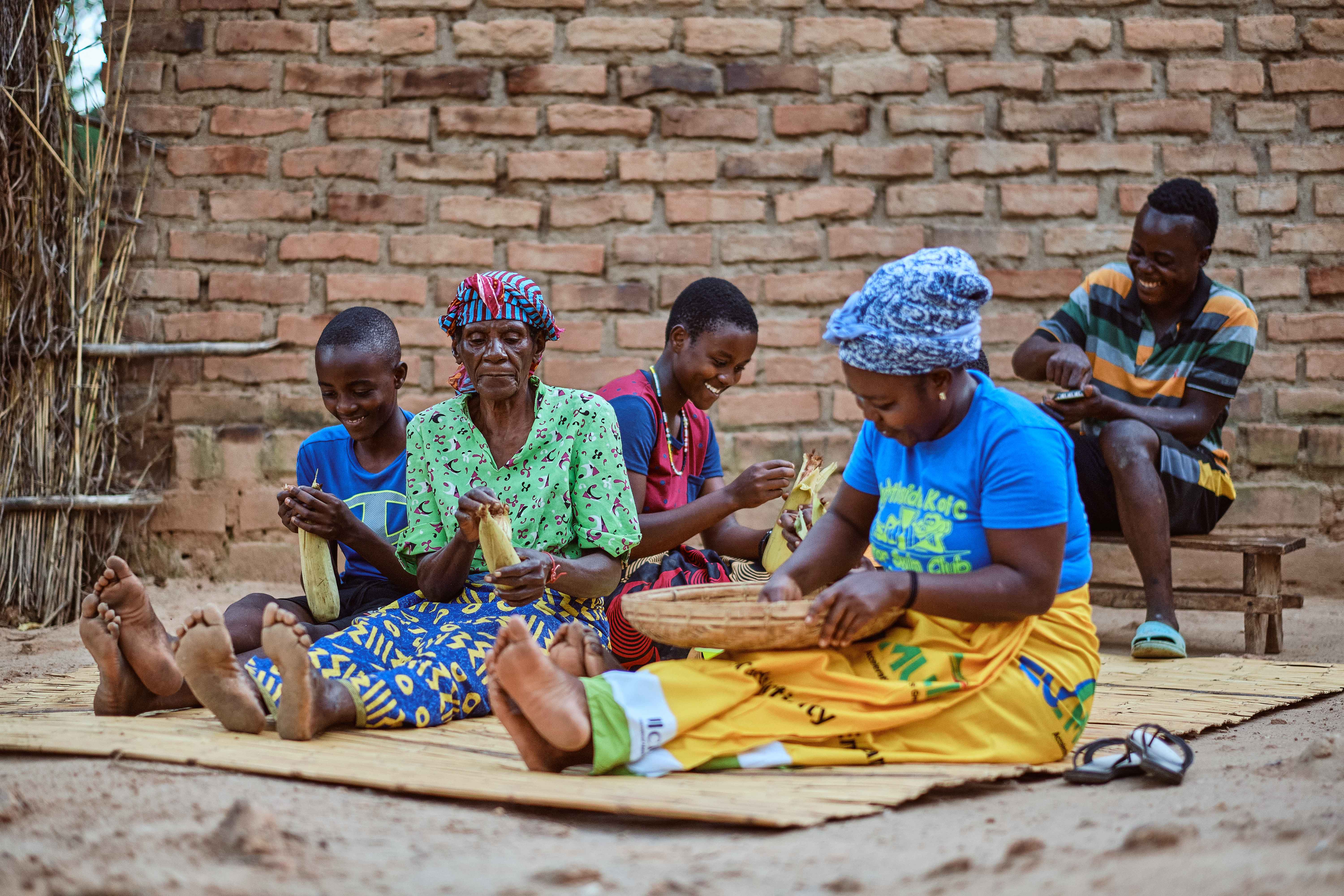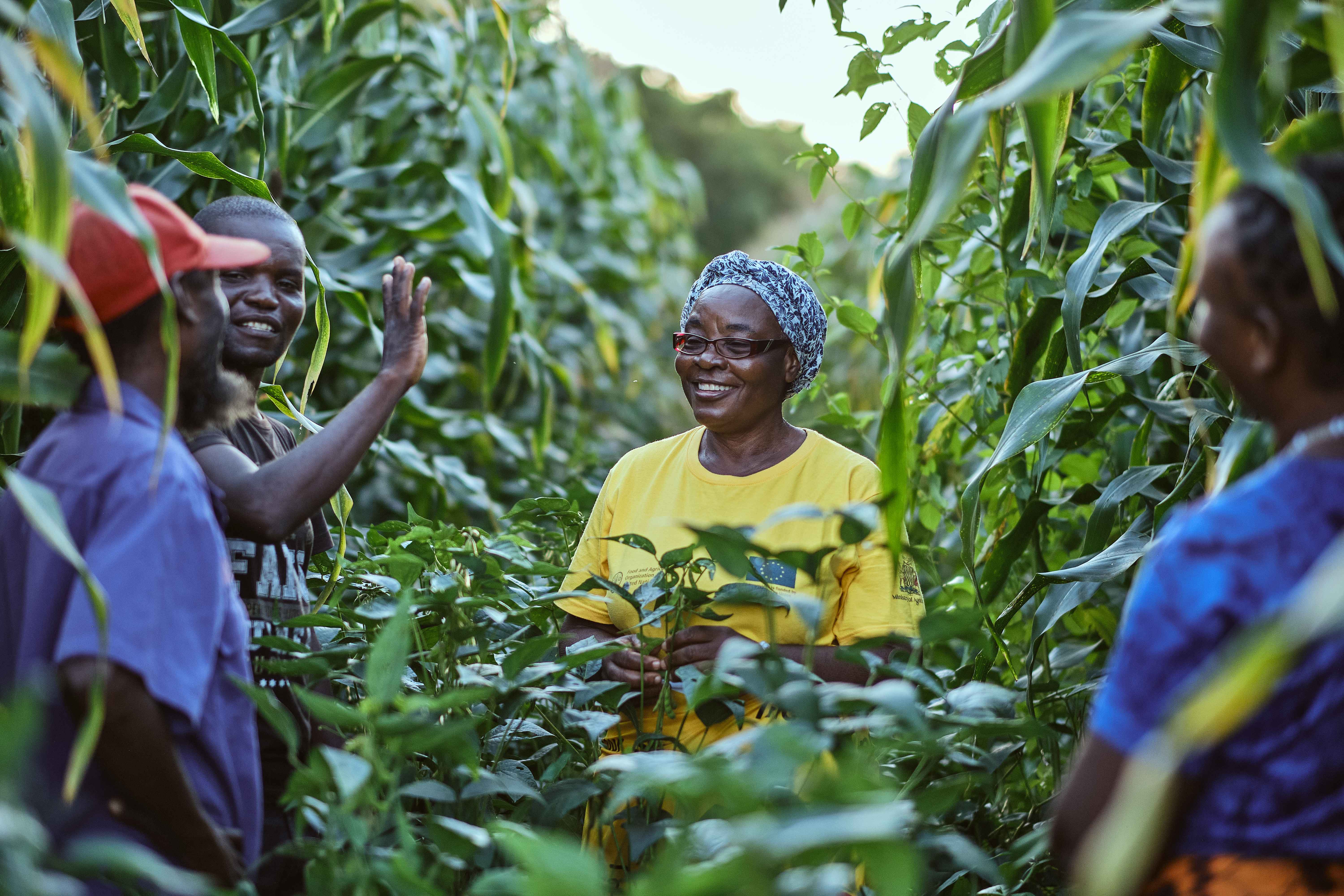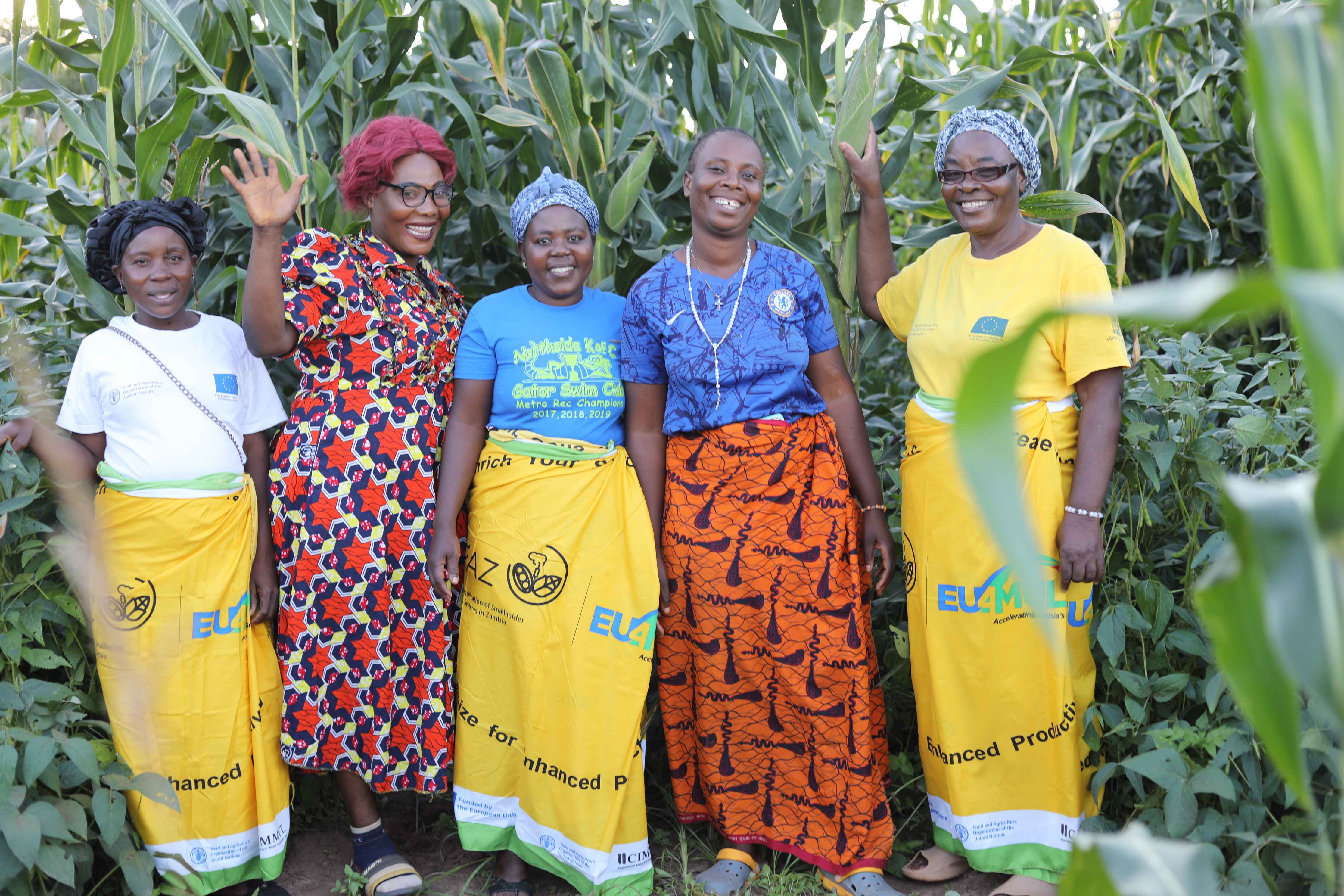
Reaping the rewards of Recommended SIP Technology Packages
Mtundu sorts out maize grain harvested from her field, as the children and her mother enjoy a cob of maize.
FAO 2025
19/03/2025
MTUNDU Zulu is a 38-year-old smallholder farmer of Chinjala Resettlement area, in Chipata District. A wife and mother of four (4) children, Mtundu is driven by determination, hard work and hopes for a better life for her family through smallholder agriculture. Her journey in farming began in 2002, and like most farmers, she limited her production to crops like maize, soybean, sunflower and groundnuts.
“Although my husband and I had been producing various crops for consumption and profit, yields had been declining, thus, negatively impacting household nutrition; the incomes to support our children’s education, and generally our ability to meet other basic needs. This experience made me realize that the soil was a living organism which required attention and care, if it were to produce optimum results,” Mtundu narrated.
With that, she decided to connect with a network of smallholders that was working closely with researchers from the Ministry of Agriculture and CYMMIT, to co-develop Sustainable Intensification Practices (SIPs), using adaptive research, to address the yield gaps that smallholders were grappling with; to adapt to climate change by incorporating agroforestry trees, and maintain productivity over longer periods, by adapting practices that improve soil health.
“My lead farmer Mr Jackson Banda informed me, in 2019, about how our extension officer was recruiting smallholder farmers to participate in the validation of various climate-smart agricultural technologies, as either mother-trial or baby- trial farmers. He then asked if I was interested, and I accepted as I was convinced that that was the solution I needed to improve soil fertility and subsequently yields. But due to technical problems, I was only able to get the opportunity to participate in the project in 2022,” Mtundu said. By attending farmer meetings facilitated by the Ministry of Agriculture, Mtundu participated in training programs focused on SIPs, thus, generating a change in her approach to agriculture.
“At the mother trial field of our lead farmer, several technologies are tested including conventional farming, conservation agriculture involving legume and maize inter-crops, crop rotations, intensification and crop residue retention. What fascinated me the most though, was the soil health technology, particularly the four-row ‘strip cropping’, where four rows of maize are spaced at 45 cm intervals, and alternate with four rows of a legume equally at 45 cm spacing, to improve soil health. This is the technology that I have been experimenting with on my 10 x 10 metres baby trial field since joining the project in 2022,” she said.
This hands-on experience familiarized Mtundu with innovative agricultural technologies that could enhance the nutrition status of soils, increase productivity, and at the same time, strengthen the resilience of smallholders to the impacts of climate change. Armed with this knowledge, Mtundu decided to expand the area of cultivation from a 10 x 10 metres field to 1.5 hectares, during the 2024 – 2025 farming season. This action alone, makes Mtundu the only farmer in her camp to adopt the ‘four-row strip cropping’ to this magnitude.
“The technology has performed so well so far that I am hopeful of a harvesting over 150 x 50 Kg bags of maize and about 30 to 40 bags of soybean. This should fetch us reasonable income,” she said confidently. Mtundu is excited about her successes with strip cropping which include production of diverse crops on the same land; maximum soil-cover due to inter-cropping of maize and soybean, and reduction in exposure to pests and diseases. This planting of 4 strips of maize and 4 strips of legume cover crops has also helped Mtundu ensure effective crop rotations, as well as enhance soil fertility. Mechanization with a two-wheel tractor is also possible with the four-row strip cropping as it can fit into the spacing of the legume. Her message to farmers is that “once you take care of the soil, it will take care of you.”
Mtundu’s realisation of rewards dates to the capacity building opportunities that were available to her through the European Union-funded SIFAZ Project, implemented by FAO in close collaboration with CIMMYT and the Ministry of Agriculture.


